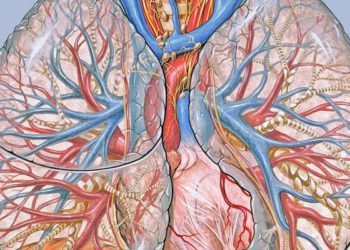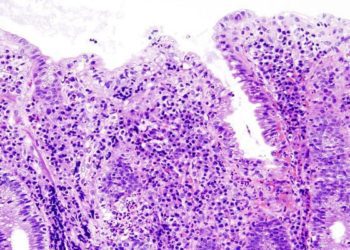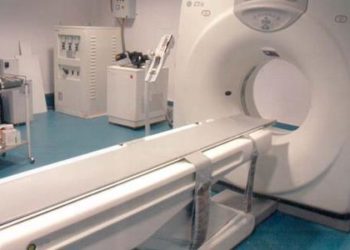New method may predict response to chemotherapy for lung cancer
1. In a microarray analysis of excised lung tumor specimens, 12 miRNAs were found to be associated with response to platinum-based chemotherapy.
2. From these 12 miRNAs, a three-miRNA panel could accurately predict patients’ response to platinum-based chemotherapy, irrespective of differences in oncogene expression and clinical characteristics.
Study Rundown: Adenocarcinoma of the lung (LADC) is one of the most common malignancies worldwide and carries a relatively high mortality rate. While surgical resection remains the primary curative option, patients with advanced or recurrent disease rely upon chemotherapy to increase survival. The most common form of chemotherapy for tumors without oncogenic aberrations is platinum (either cisplatin or carboplatin) combined with either agents against microtubule stability (such as paclitaxel) or DNA integrity (such as gemcitabine). Unfortunately, response rates to this chemotherapy range from 30-40%. A biomarker that can predict response may be useful in appropriately selecting patients.
In this study, the authors aimed to determine potential micro-RNAs (miRNAs) biomarkers for predicting response to platinum-based chemotherapy. In a test cohort of 40 surgically excised LADC specimens, the study determined 12 miRNAs that showed greater than a five-fold difference in expression between patients who had either a complete or partial response to chemotherapy as compared to those who did not respond. Of those, three- miRNA panel correctly predicted response in 82.5% of the test cohort and 77.8% in a 63-patient validation cohort. Notably, variability in oncogenic aberrations and clinical characteristics did not affect the accuracy of the miRNA panel. The discovery of these three miRNA panel may predict chemotherapeutic response to platinum-based therapy; however, this study was limited in its retrospective design and relatively small sample size in both the test and validation cohort.
Click to read the study in Clinical Cancer Research
Relevant reading: Comparison of four chemotherapy regimens for advanced non-small-cell lung cancer
In-Depth: In this study, 904 intra-tumor miRNAs were screened from 103 surgically resected LADC tissues. Responders, based on the RECIST criteria, to chemotherapy were found in 16 of the 40 (40%) patients in the test cohort and 18 of the 63 (28.6%) patients in the validation cohort. Using Spearman’s correlation, 12 miRNAs were found in the microarray data that had a 5-fold differential expression between responders and non-responders. Of these, three were confirmed from qRT-PCR studies to be differentially expressed: miR-1290 (P<0.001), miR-196b (P<0.001), and miR-135a*(P<008). The authors used principal component and support vector machine analyses to show that the three miRNA panel accurately predicted response in 82.5% of the test cohort and 77.8% of the validation cohort. In patients with EGFR, KRAS, and HER2 mutations, the non-prediction rate was 15%, 10%, and 33%, respectively. Clinical factors also did not correlate with non-prediction rate of the three miRNA panel.
More from this author: Erlotinib does not demonstrate increased survival in ovarian epithelial carcinomas, Afatinib shows increased progression-free survival in non-small-cell lung cancer, Radiosurgery alone may be effective for some arteriovenous malformations, Escalated-dose radiotherapy did not increase survival in prostate cancer, Stereotactic radiosurgery promising for patients with multiple brain metastases
Image: CC/Wiki
©2012-2014 2minutemedicine.com. All rights reserved. No works may be reproduced without expressed written consent from 2minutemedicine.com. Disclaimer: We present factual information directly from peer reviewed medical journals. No post should be construed as medical advice and is not intended as such by the authors, editors, staff or by 2minutemedicine.com. PLEASE SEE A HEALTHCARE PROVIDER IN YOUR AREA IF YOU SEEK MEDICAL ADVICE OF ANY SORT.









